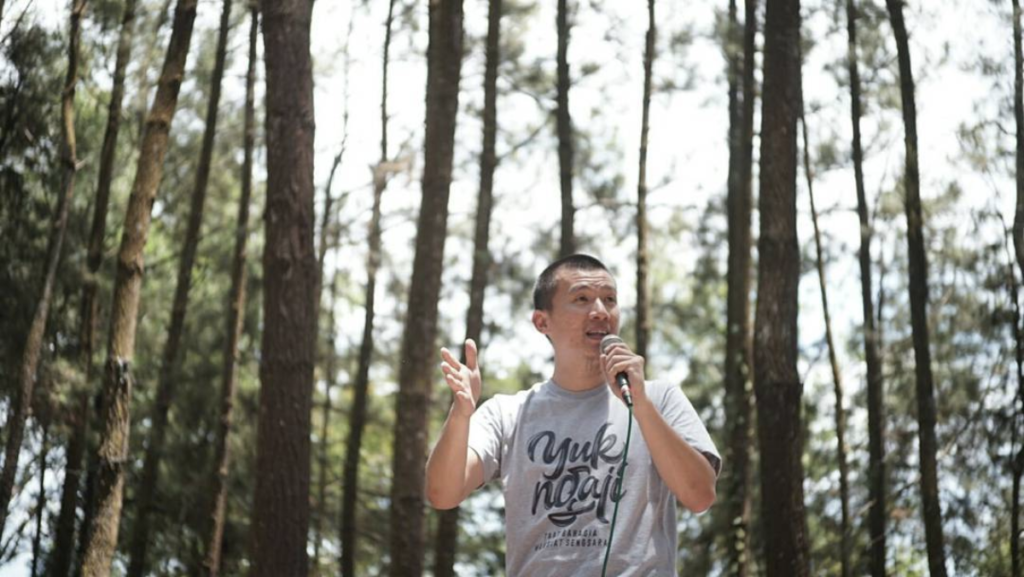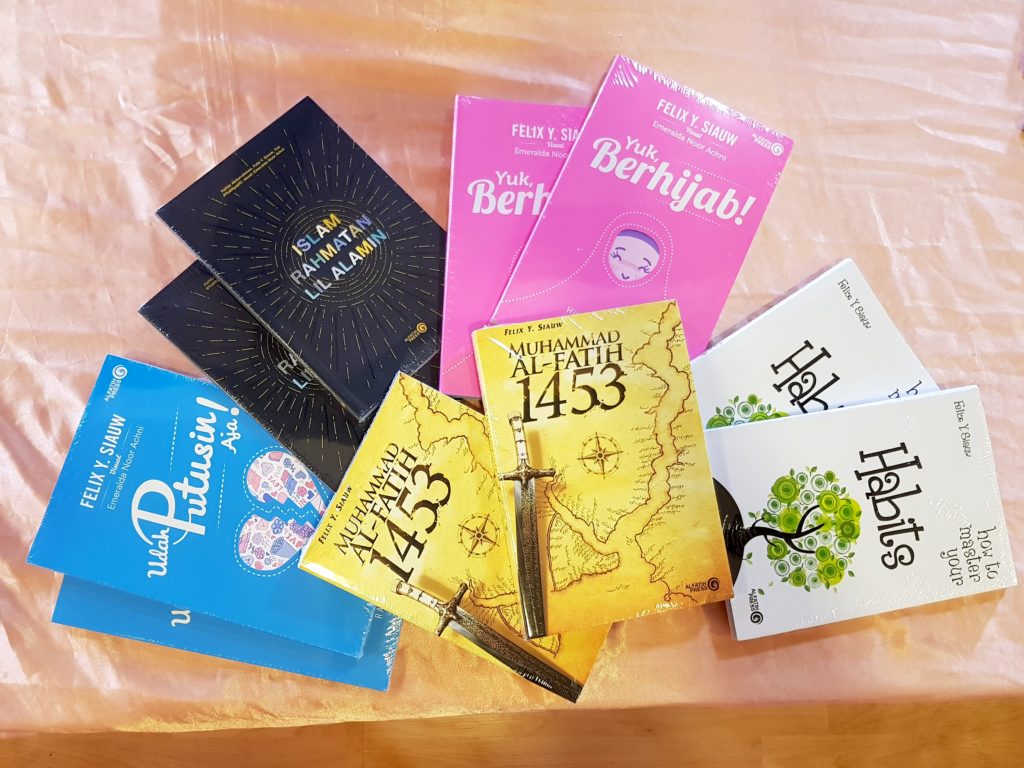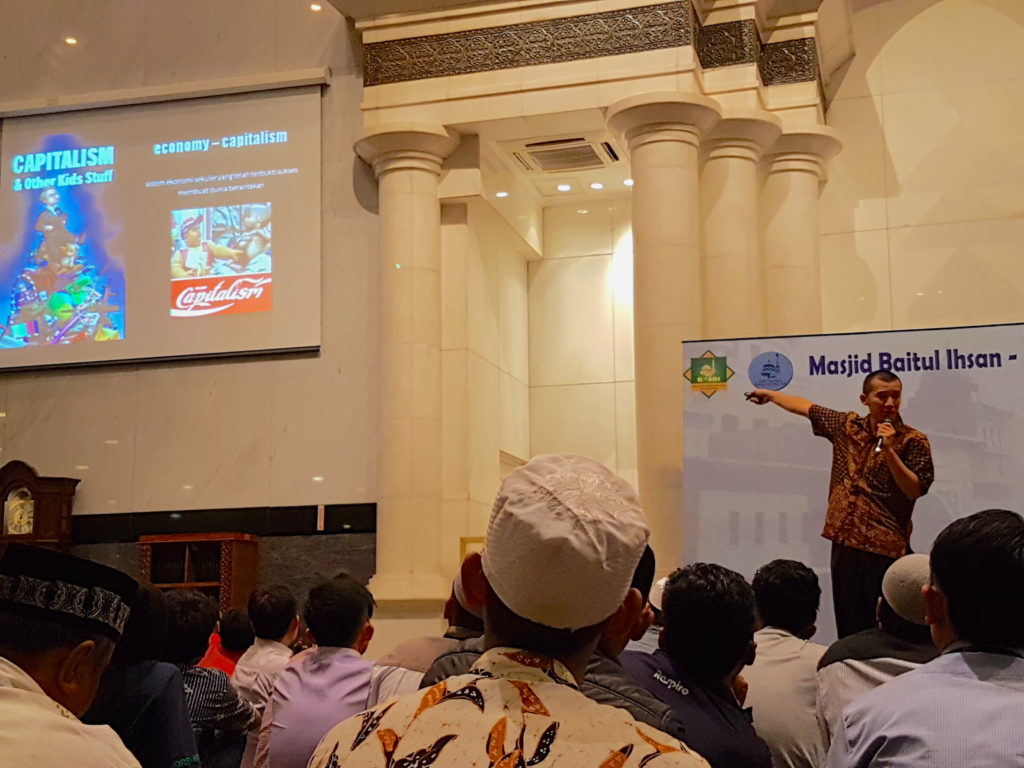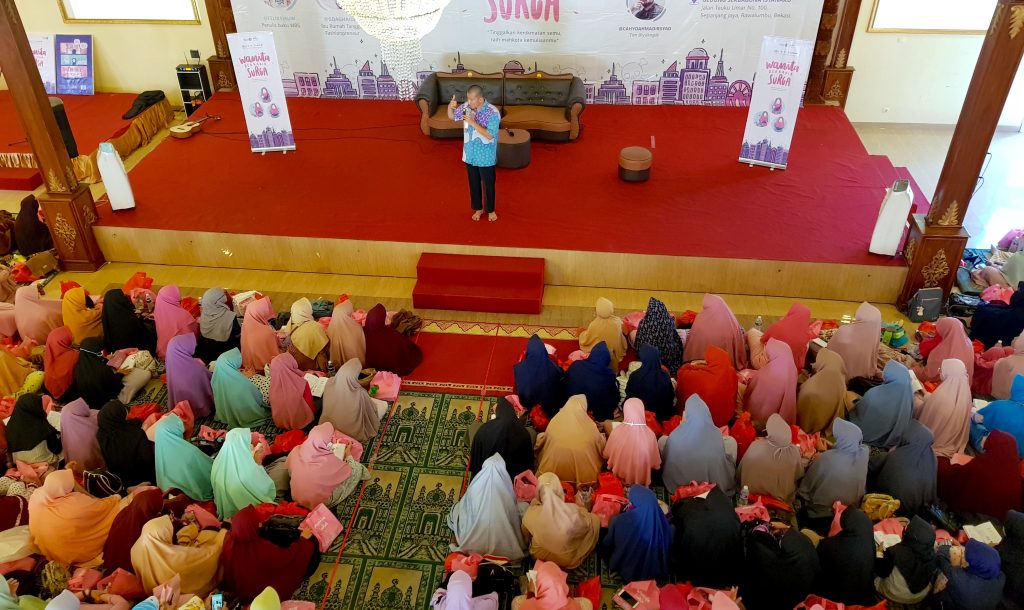In the aftermath of the official ban of Hizbut Tahrir Indonesia (HTI), the Nahdlatul Ulama-linked paramilitary front Banser has made headlines by disrupting appearances by Felix Siauw, a popular yet controversial HTI-linked preacher. Ustadz Felix, as he is known to his fans, has been accused of promoting a transnational caliphate and undermining Pancasila, the founding principles of Indonesian nation-state. However, such challenges did not stop him from engaging in dakwah (Islamic preaching). Instead, he has intensified both his online and offline dakwah activities. His popularity has not fallen, but risen.
A prolific writer, a visual enthusiast, a social media activist, an inspiring speaker, a religious entrepreneur, a political activist, a coffee lover, a former marketing manager—Felix Siauw has many faces. Born into an ethnic Chinese family 1984 in Palembang, South Sumatra, Felix was a Catholic before being converted to Islam in 2002, after learning about Islam through his HTI activist friends at Institut Pertanian Bogor (Bogor Agricultural Institute, IPB) in West Java, a well known hub of Islamist activity. His extensive use of social media, fetching visual aesthetic, oral persuasion, and marketing strategy—not to mention his ethnic Chinese background, his status as a mualaf (convert to Islam), and his affiliation with HTI—make Felix a unique player in the crowded Islamic preaching market in Indonesia.
As of today, Felix has more than 4 million followers on Facebook, 2 million followers on Twitter and 1 million followers on Instagram, making him one of the most popular preachers on Indonesian social media. Moreover, he is not alone, but part of a broader network sharing similar information online. He operates various businesses to promote and sustain his dakwah activities. With his wife he runs Hijab Alila, an Islamic fashion brand named after their first daughter. He has his own publishing house, AlFatih Press, for which he has authored or co-authored at least ten books, including the best seller Udah Putusin Aja (Cut it Out Already) and Yuk Berhijab (Let’s Wear Hijab). Together with a few friends, he established Yuk Ngaji, a dakwah team running activities billed as Hangout, Meetup, and Islamic study sessions targeting Muslim youths.

Felix Siauw with a #YukNgaji-branded T shirt. (Photo: @felixsiauw on Instagram)
Unlike other popular preachers, such as Yusuf Mansur and Mamah Dedeh, who often avoid contentious political topics, Felix does not shy away from his commitment to establish an Islamic caliphate such as propagated by HTI.
Even though he comes from a non-Muslim family, he often labels non-Muslims as kafir (infidels) and disapproves of the idea of their leading Muslim societies. After the Al-Maidah incident that led to former Jakarta governor Basuki Tjahaja Purnama (Ahok) being charged for blasphemy, Felix Siauw immediately tweeted 32 short messages attacking Ahok for offending Muslims. One of his tweets stated: “Let us tell Ahok, this is not racism, Muslims are not taught to hate race, but to hate infidel-ness, arrogance and injustice”. In this sense, Felix Siauw is a HTI poster boy, showing that the organisation is not “anti-Chinese”, and is only against those who insult Islam. Felix labelled Ahok as a penista agama (insulter of Islam) and mobilised his followers to join the anti-Ahok Aksi Bela Islam (Action to Defend Islam) rallies in Jakarta.
But Felix has been smart in blurring the boundary between Islamic practice and HTI ideology. He intentionally uses the supposedly inclusive concept of Islam Rahmatan lil-Alamin (Islam as blessing for all) to promote HTI ideology. He claims he is engaging in dakwah and upholding Islam; in practice what he promotes is Islamic teaching as understood by HTI. Such strategies allow him to continue to subtly promote HTI ideology even without carrying the name of this banned organisation, navigating through various online and offline spaces without being accused of breaking the law.

Some of Felix Siauw’s published work. (Photo: author)
His political stands have led some of his opponents to label him as an ustadz radikal (radical preacher). His followers, meanwhile, see him as an ustadz gaul (down-to-earth preacher). But of course, one can be radical and down-to-earth at the same time. It is this blend of radikal and gaul that makes Felix Siauw one of the most interesting figures in Indonesia’s new popular Islam. In other words, his preaching is fun yet hard line, colourful yet conservative, interactive yet dogmatic.
By juxtaposing these supposed contradictions, he is flexible enough to adapt to recent developments and social realities, while holding firm to his ideological commitment. He retains his Chinese name as a recognition of his heritage, but disapproves of Chinese New Year celebrations. He wears batik to indicate his appreciation of Indonesian culture, yet this does not mean that he endorses Pancasila, or even the Islamic-tinged nationalism of Indonesia’s mainstream Islamic organisations. He follows the logic of social media, but at the same time he seeks to “Islamise” these platforms. He strongly rejects democracy, yet embraces existing democratic space to promote theocratic ideology.
Who does this blend of radikal and gaul appeal to, and why? Many of Felix’s followers are Muslim youth who previously had little religious education, yet would like to hijrah (“withdraw from the sinful world”). Felix, the convert-turned-preacher, provides them with a role model for becoming a pious Muslim. The titles of his books and talks, such as Art of Dakwah, Power of Ngaji, Miracle of Hijrah and Ways to Believe, clearly illustrate how he makes his preaching appealing to young audiences. When I talked to young female followers of Felix Siauw in a few events, they told me why they like his dakwah materials and styles—being “cool”, “beautiful”, “energetic”, “nice to read”, “nice to be seen”, “easy to understand”, “touching” and “logical”.
For those who engage with his ideas beyond social media, Felix provides two types of book. The first appeals broadly to conservative-inclined Muslims and avoids direct ideological reference, such as in Udah Putusi Aja. The second, meanwhile, subtly promotes HTI ideology, such as in Khilafah*Remake. The first type is accepted better among Felix’s followers. Similarly, many of his followers like his preaching style, but do not necessarily agree with all of the content. They might agree with him on issues such as Islamic dress codes and social interaction, but hesitate to endorse his political stands, particularly on the Khilafah. Many of his followers would disagree with the disruption of his talks and disapprove of the application of the “radical” label to him, but they do not necessarily understand what constitutes the Caliphate nor support HTI ideology.

Felix Siauw speaking at the Baitul Ihsan mosque at Indonesia’s central bank headquarters in Jakarta, September 2016. (Photo: Hew Wai Weng)
Having said this, one should not underestimate his ability in shaping Muslim public opinion. In December 2017, Felix performed well in an episode of the popular TV talk show, Indonesia Lawyers Club, on the theme of 212: Perlukah Reuni? (212: Is Reunion a necessary?). His arguments could be easily rebutted by learned Muslim scholars and clerics. But he is not there to convince prominent kiai and ulama, especially those in NU. His aims are to consolidate his support base and to convince his potential followers. On this ground, he has been quite successful: there has been a surge in the number of his Facebook and Instagram followers, and he receives ever more invitations to speak in Indonesia and abroad.
Where does Hizbut Tahrir Indonesia go from here?
International experience shows that the organisation can survive, even thrive, in the face of official bans.
Moreover, Felix is not an isolated case. He has built up friendship with other preachers such as Abdul Somad (traditionalist-inclined), Salim A Fillah (tarbiyah-inclined), and Adi Hidayat (salafist-inclined). They reflect a broader change in the trend of Islamic preaching—one in which piety, politics, and popularity are interconnected, and in which the disintermediating effects of social media, and the influence of market forces, increasingly shape the face of political Islam.
 Facebook
Facebook  Twitter
Twitter  Soundcloud
Soundcloud  Youtube
Youtube  Rss
Rss 



